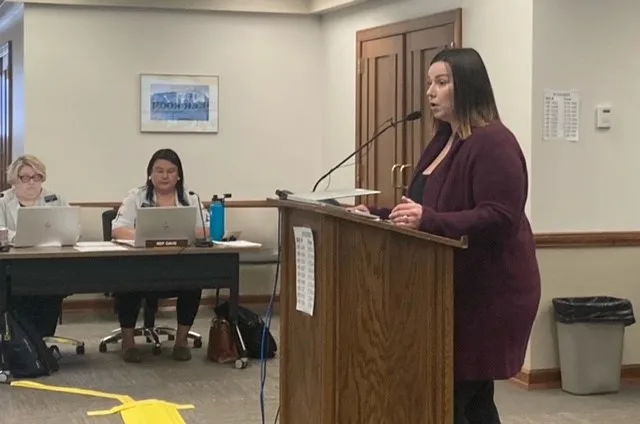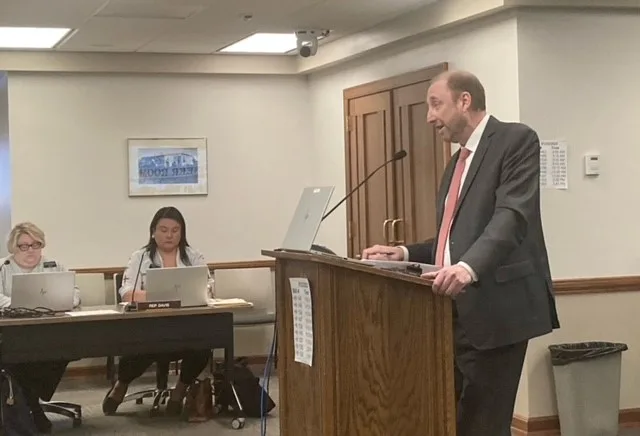

BISMARCK – The North Dakota House and Human Services committee heard much testimony Monday on bills relating to vaccine transparency and mandates.
House Bill 1207 would require the Department of Health and Human Services to publish vaccine adverse events on its website.
The sponsor of the bill, Representative Dick Anderson, R-Dis 6, Willow City, said he received a lot of complaints about adverse reactions to vaccines.
“I called the Department of Health, and they told me to call the CDC, and when I called them they said they didn’t have the data collected yet, so it wasn’t available,” said Anderson. “I’m thinking, we’ve already been into the COVID pandemic for a year and a half, so I was kind of disappointed that I couldn’t get any data.”
House Bill 1406 would require the Department of Health and Human Services to study the effects of the COVID-19 vaccine and cover the costs of those injured from it. It would also prohibit a governmental entity from mandating a medical product unless the manufacturer of that product is liable for injuries caused by the product. The bill received both support and opposition.
The sponsor, Representative Jeff Hoverson, R-Dis. 3, Minot, mentioned the Vaccine Adverse Events Reporting system, which anyone can report to if they believe they have been injured by a vaccine. Hoverson said in 2021 and 2022, over 20,000 deaths were reported, which exceeds VAERS reported deaths from every other vaccine since 1990.
“I don’t think it does us any good to dismiss that,” said Hoverson. “No matter what you think, if you think it’s just hype from anti-vaxxers. We still have to deal with an explanation for this. So rather than saying it’s all hype, we have to look into maybe 1,000 out of the 20,000.”
Roberta Gackle, Fargo, shared how immediately after receiving the COVID-19 vaccine in March of 2021 she started having problems with her eyes, and now has jumpy eyesight, as well as muscle pain in her arms.
“Recently the FDA and CDC indicated that there may be a connection between vaccines and strokes,” Gackle added.

In opposition, Molly Howell of Bismarck, immunization director of the North Dakota Department of Health and Human Services, said the department is not opposed to continuing to monitor vaccine adverse events, but believes it is best done on a national level, since North Dakota may be too small of a sample size. The bill also needs clarification, she said.
“Is the intent of the study to count individuals who happened to have died within 30 days of a COVID-19 vaccine, or is the intent to see if there’s an association or causation of a health event from a COVID-19 vaccine?” Howell asked. “Without a control group, which would be unvaccinated individuals, and medical chart reviews, it would be very difficult to identify an association between an event and the COVID-19 vaccine.”
Howell mentioned a study in the United Kingdom which showed vaccinated individuals were not dying at a higher rate than unvaccinated.
“Serious adverse events related to vaccines are extremely rare, and vaccine manufacturers are not liable for unforeseen adverse events,” Howell added. “However, they are liable for negligence, if they’re intentionally trying to harm people.”
Kylie Hall, Fargo, said she has worked in the Center for Immunization Research and Education at North Dakota State University for seven years, though she did not speak on behalf of NDSU.
“We all want safe vaccines,” said Hall. “I think that’s one thing we can all agree on. I believe when you truly understand the rigorous process behind vaccine development and safety monitoring in the United States and the incredibly high standards that vaccines are held to, you too will understand how unnecessary bills like this are in North Dakota.”
Hall added that the COVID-19 vaccine has even more safety data than any other vaccine, and there is no data that links the adverse events to the vaccines, but the contrary.
“If today I gave 10 million people a sugar cube and all I did was watch them for two months, there’d be approximately 4,021 heart attacks, 1,700 blood clots, 3,075 strokes, 9,500 new cases of cancer and 14,000 people would die,” said Hall. “Unfortunate things happen to people every day, and they likely would’ve happened whether they were given a sugar pill, or whether they were given a vaccine.”